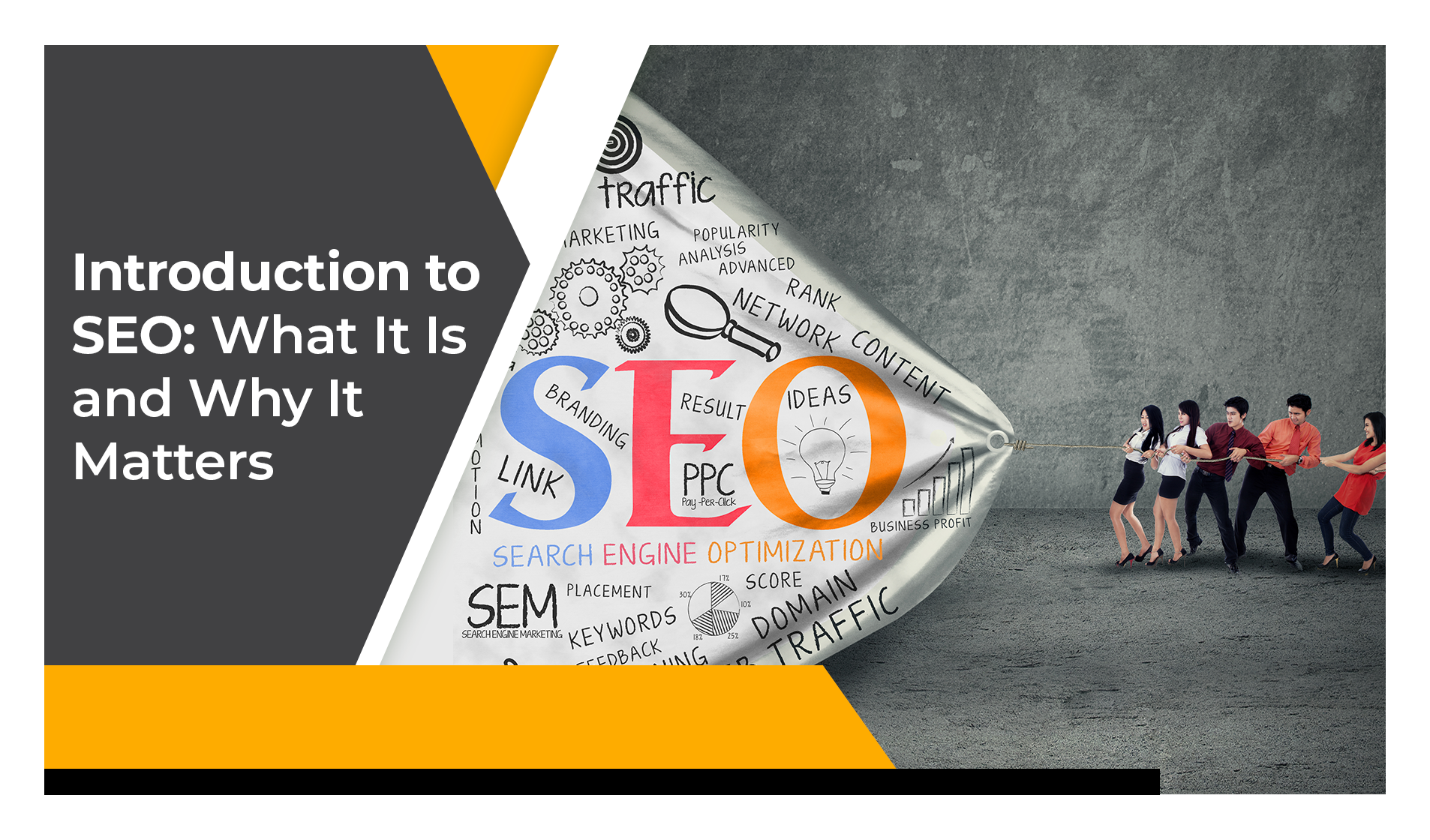10 Reason Website is Required for Business Growth and Expansion in 2024

In this digital age of 2024, the landscape of consumer behavior has dramatically shifted, driven by the rapid advancements in technology and the widespread adoption of the internet. The days of flipping through the Yellow Pages to find businesses are long gone, replaced by the convenience of online searches and the wealth of information available on the World Wide Web. In this context, having a website has become an indispensable asset for businesses across all industries.
The Evolution of Consumer Behavior
The evolution of consumer behavior is a testament to the transformative power of the internet. Today, people rely heavily on online resources to gather information, make purchasing decisions, and interact with businesses. The shift from traditional media to digital platforms has been swift and profound, with profound implications for businesses that wish to remain competitive in the modern marketplace.
Consider this: 97% of people now use the internet to research local businesses, making a strong case for the necessity of having a robust online presence. Whether you operate in retail, services, or manufacturing, having a website is no longer a luxury but a strategic imperative for reaching and engaging with your target audience.
The Top 10 Reasons Why Your Business Needs a Website
Meeting Customer Expectations: In today’s tech-savvy world, customers expect businesses to have a website where they can find more information about products, services, and contact details. Not having a website can create skepticism among potential customers and lead them to perceive your business as outdated or less credible.
Showcasing Social Proof: A website serves as a platform to showcase social proof in the form of customer testimonials, reviews, case studies, and certifications. These elements help build trust and credibility with prospective customers, encouraging them to choose your business over competitors.
Controlling the Narrative: With a website, you have full control over how your brand is perceived and the messaging you convey to your audience. This control allows you to shape the narrative, highlight your unique selling propositions, and differentiate your business from others in the market.
Maximizing ROI: A well-designed and optimized website can significantly contribute to maximizing return on investment (ROI). By attracting targeted traffic, converting visitors into leads or customers, and nurturing ongoing relationships, your website becomes a powerful tool for driving revenue and business growth.
Enhancing Credibility: A professional and informative website enhances your company’s credibility and legitimacy in the eyes of potential customers. It signals that you take your business seriously, invest in your online presence, and prioritize providing value to your audience.
Facilitating Constructive Conversations: A website serves as a central hub for information, enabling more constructive conversations with customers, prospects, and stakeholders. By providing comprehensive answers to common questions, sharing valuable insights, and offering interactive features, your website becomes a valuable resource for engagement and communication.
Competing with Industry Leaders: Having a website levels the playing field, allowing small and medium-sized businesses to compete effectively with industry giants. By leveraging digital marketing strategies, search engine optimization (SEO), and user-friendly design, your website can attract and retain customers in a competitive marketplace.
Compensating for Social Media Reach: While social media platforms are valuable for brand awareness and engagement, they have limitations in reach and control. A website compensates for these limitations by providing a reliable, centralized platform for content distribution, analytics tracking, and customer interactions.
Expanding Working Hours: Unlike physical stores or offices that have limited operating hours, a website operates 24/7, allowing you to reach a global audience around the clock. This extended accessibility enables continuous user interaction, supports marketing efforts, and facilitates sales conversions beyond traditional business hours.
Showcasing Offers and Promotions: Your website serves as a dynamic showcase for your products, services, promotions, and special offers. By regularly updating content, highlighting new offerings, and leveraging multimedia elements, you can attract, engage, and convert prospects into loyal customers.
Essential Steps to Start Your Website Journey
To embark on your website journey and harness its full potential, consider the following essential steps:
Define Goals and Objectives: Clearly define the goals and objectives of your website, such as lead generation, online sales, brand awareness, or customer support.
User-Friendly Design: Ensure your website is user-friendly, visually appealing, and optimized for seamless navigation across devices.
Content Organization: Organize your website content logically, including FAQs, product/service descriptions, testimonials, contact information, and valuable resources.
SEO Optimization: Optimize your website for search engines by incorporating relevant keywords, meta tags, and high-quality content that resonates with your target audience.
Social Media Integration: Integrate social media features and sharing buttons to amplify your content reach and encourage social engagement.
Email Marketing Integration: Enable users to subscribe to newsletters, updates, and promotional offers, fostering ongoing communication and relationship building.
Analytics Tracking: Implement analytics tools to track website performance, user behavior, traffic sources, and conversion metrics for continuous improvement.
Mobile Responsiveness: Ensure your website is mobile responsive and provides a seamless browsing experience across smartphones, tablets, and desktops.
Security Measures: Prioritize website security by implementing SSL certificates, secure payment gateways (if applicable), and regular updates to protect user data and privacy.
Continuous Optimization: Regularly review and optimize your website based on user feedback, industry trends, and performance metrics to enhance user experience and achieve business objectives.
Frequently Asked Questions (FAQs) About Having a Website
Why is having a website important for businesses today?
Having a website is crucial because it allows businesses to establish an online presence, reach a wider audience, showcase products or services, build credibility, and facilitate customer interactions.
What are the key benefits of having a website for small businesses?
For small businesses, a website offers benefits such as leveling the playing field with larger competitors, enhancing visibility, attracting new customers, providing information 24/7, and enabling online transactions.
Do I need technical skills to create and maintain a website?
While technical skills can be beneficial, there are user-friendly website builders and content management systems (CMS) available that require no coding knowledge. Additionally, outsourcing website creation and maintenance to professionals is a common option.
How can a website help in marketing and promotion efforts?
A website serves as a central platform for digital marketing activities, including content marketing, search engine optimization (SEO), social media integration, email marketing, and online advertising. These efforts collectively enhance brand visibility, attract leads, and drive conversions.
What features should a business website include?
Essential features for a business website include a user-friendly design, clear navigation, mobile responsiveness, contact information, product/service descriptions, customer testimonials, an about us section, social media integration, and secure payment options (if applicable).
Is having a website enough, or should businesses invest in digital marketing as well?
While having a website is essential, investing in digital marketing strategies is equally important for driving traffic, generating leads, nurturing customer relationships, and achieving business goals. Digital marketing complements a website by amplifying its reach and effectiveness.
How can I measure the success of my website?
Website success can be measured through various metrics, including traffic volume, user engagement (such as time on site, pages per visit), conversion rates (such as leads generated, sales made), search engine rankings, social media interactions, and customer feedback.
What are some common mistakes to avoid when creating a website?
Common mistakes to avoid include neglecting mobile optimization, using excessive technical jargon, having a cluttered design, neglecting SEO best practices, ignoring user experience (UX) feedback, lacking clear calls-to-action (CTAs), and neglecting security measures.
How often should I update my website content?
It’s advisable to update website content regularly to keep information accurate, fresh, and relevant. Content updates can include blog posts, product/service updates, news and announcements, testimonials, FAQs, and seasonal promotions.
Can a website help in expanding my business globally?
Yes, a well-designed and optimized website can help businesses expand their reach globally by attracting international visitors, facilitating online transactions in multiple currencies, offering multilingual content, and leveraging global SEO strategies.
